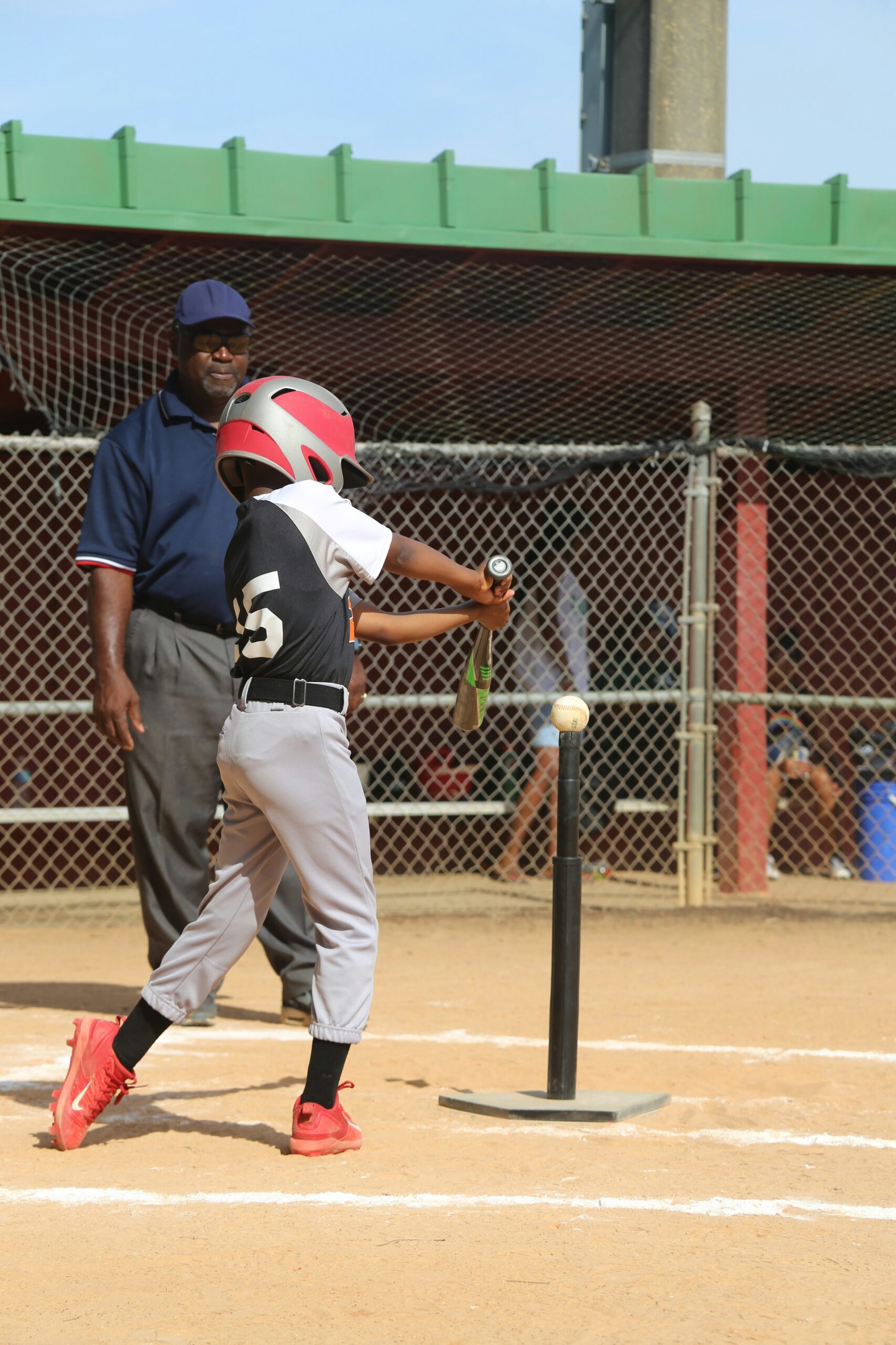Introduction
In the vibrant landscape of professional basketball, the upcoming match between the OKC Thunder and the Dallas Mavericks stands out as a significant confrontation in the current season. As both teams aim to solidify their standings and bolster their playoff aspirations, the stakes could not be higher. The Thunder, known for their youthful exuberance and strategic gameplay, will face off against a seasoned Mavericks squad that boasts high-profile talent and playoff experience. This matchup is crucial not only for the teams involved but also for fans and analysts keen on understanding the dynamics at play in the Western Conference.
Fans can expect a highly competitive affair, showcasing individual player performances that have the potential to sway the outcome of the game. Statistically, both teams bring intriguing metrics to the court: the Thunder, with their burgeoning stars, will look to exploit their athleticism and tenacity, while the Mavericks will rely on the precise shooting and playmaking of their key players. Performance statistics, including points per game, shooting percentages, assists, and rebounds, will be closely monitored as both teams strive for supremacy.
Particular attention will be drawn to pivotal players, such as the OKC Thunder’s emerging talent, who have shown exceptional promise throughout the season, alongside the Mavericks’ established stars, who play crucial roles in their team’s success. This game not only promises to deliver thrilling basketball action but also serves as a platform where players can elevate their statistics in front of a live audience and gain momentum as the season progresses. As the rivalry unfolds, the analysis of player performance will take center stage, making this an anticipated matchup for both teams and their supporters alike.
Key Players for OKC Thunder
The Oklahoma City Thunder showcased a compelling performance during their matchup against the Dallas Mavericks, highlighted by the remarkable contributions of several key players. Shai Gilgeous-Alexander stands out as the Thunder’s leader, consistently delivering high-level play. During the game, he recorded an impressive 28 points, complemented by 6 assists and 4 rebounds. His ability to drive to the basket, combined with his effective mid-range shooting, significantly impacted the team’s offensive efficiency.
Another crucial player for the Thunder was Josh Giddey, who demonstrated his exceptional playmaking skills. Giddey tallied 10 assists, showcasing his vision and court awareness while contributing 15 points and grabbing 7 rebounds. His performance was pivotal in orchestrating the Thunder’s offense and facilitating ball movement, leading to high-quality scoring opportunities. Giddey’s ability to collapse the Dallas defense with his drives opened up space for his teammates, contributing to a balanced scoring attack.
Defensively, Lu Dort made his mark by being an integral part of the Thunder’s perimeter defense. Dort recorded 2 steals and provided tenacious on-ball defense, which disrupted the Mavericks’ offensive rhythm. His defensive prowess, combined with a solid output of 14 points, underscored his value as a two-way player, capable of impacting the game at both ends of the floor. Additionally, veteran presence from players like Derrick Fisdale enhanced their defensive cohesiveness, contributing important minutes off the bench.
In summary, the standout players for the OKC Thunder not only captured solid individual statistics but also impacted the game positively through teamwork and strategic playmaking. Their performances exemplified a collaborative effort that led to a successful outcome against the Mavericks, reinforcing the notion that strong individual contributions are vital to team success.
Key Players for Dallas Mavericks
In the recent match against the Oklahoma City Thunder, the Dallas Mavericks showcased several key players whose contributions were critical to the team’s performance. Luka Dončić, the Mavericks’ star, delivered a spectacular performance, scoring 35 points while also adding 10 rebounds and 8 assists. His ability to create scoring opportunities, both for himself and his teammates, remains unmatched. Dončić’s proficiency in handling the ball and making intelligent plays has made him an indispensable asset for the Mavericks, particularly in high-pressure situations.
Another pivotal player was Kyrie Irving, who complemented Dončić’s offensive efforts by contributing 28 points and 6 assists. Irving’s deft shooting skills and experience underlined his importance in clutch moments, providing the Mavericks with the confidence to maintain their lead. His ability to drive to the basket while also being a prolific three-point shooter allows him to stretch defenses, creating room for other players. This dynamic duo, Dončić and Irving, has become formidable in establishing scoring consistency for the Mavericks.
Moreover, Tim Hardaway Jr. played a vital supporting role, registering 18 points along with 5 rebounds. His presence on the court as a reliable shooter helped provide spacing and additional scoring options, making the Mavericks’ offensive strategy more unpredictable. Hardaway’s defensive efforts also played a significant role, contributing to the team’s overall performance by limiting the Thunder’s scoring opportunities.
Overall, the contributions of players like Dončić, Irving, and Hardaway highlighted the Mavericks’ depth and versatility, positioning them as a competitive force in the matchup against the Thunder. Their collective performances were instrumental in the success of the Dallas Mavericks, sealing a well-deserved victory through impressive scoring and teamwork.
Comparative Analysis of Player Stats
The matchup between the OKC Thunder and the Dallas Mavericks not only brings excitement to fans but also presents a rich avenue for analyzing player statistics. A breakdown of performance metrics provides insight into the strengths and areas for improvement for both teams. Here, we delve into key statistical categories that encompass shooting efficiency, defensive capabilities, and contributions to rebounds and assists.
Shooting efficiency is critical for any basketball team, as it encompasses a player’s ability to score points effectively. For the season, the Thunder have seen notable performances from their leading scorers, with field goal percentages varying between 45% and 50%. This contrasts with the Mavericks, who generally maintain a shooting efficiency averaging around 48%, attributable to their star player who excels in high-pressure situations. A comparison of these numbers indicates that while the Mavericks hold a slight advantage in shooting efficiency, the Thunder’s depth in scoring might compensate through overall contributions from multiple players.
Defensive statistics, such as steals and blocks, further illustrate the variance in team performance. The Thunder have showcased robust defensive metrics, including a higher average of steals per game, positioning them as one of the top defensive teams this season. Conversely, the Mavericks focus on strategic defensive plays but may fall short in consistently disrupting the opponent’s offensive rhythm, reflected in lower steal numbers.
Furthermore, contributions to rebounds and assists highlight the teams’ playing styles. The Thunder tend to emphasize team-oriented play, often leading in assists, suggesting strong ball movement. On the other hand, the Mavericks, with their strong individual offensive talent, showcase higher individual rebounds, relying on their key players for dominating the boards. This contrasts in approach mirroring their overall team dynamics.
In conclusion, by analyzing the player stats and metrics between the OKC Thunder and Dallas Mavericks, fans can gain a comprehensive understanding of how each team’s strengths and weaknesses shape their performance on the court. Employing visual aids such as charts and tables can further illuminate these comparisons for a clearer analysis.
Breakdown of Team Strategies
The Oklahoma City Thunder and the Dallas Mavericks showcased distinctive strategies during their recent matchup, reflecting each team’s unique strengths and game plans. The Thunder, known for their fast-paced offense, leaned heavily on quick ball movement and rapid transitions. This approach is evident in their high number of fast break points and assists per game, which were facilitated by players like Shai Gilgeous-Alexander. His ability to navigate the court swiftly created numerous scoring opportunities, allowing the Thunder to exploit gaps in the Mavericks’ defense.
On the other side, the Mavericks employed a more methodical and controlled offense, centered around their star player, Luka Dončić. As a versatile playmaker, Dončić orchestrated many of the Mavericks’ offensive plays, often using his exceptional court vision to set up teammates for open shots. The team’s strategy focused on maximizing efficiency through well-structured set plays and prioritizing ball control to mitigate turnovers. This deliberate pace resulted in a statistically significant number of three-point attempts, as the Mavericks sought to stretch the Thunder’s defense and capitalize on floor spacing.
Defensively, the Thunder adopted an aggressive scheme, applying pressure to disrupt the Mavericks’ rhythm. This strategy was apparent in their substantial steal and block numbers, showcasing their ability to create turnovers. The defensive efforts relied heavily on players like Lu Dort, whose tenacious guarding contributed to the overall defensive success. Conversely, the Mavericks balanced their defensive approach, employing a combination of zone and man-to-man setups aimed at neutralizing the Thunder’s speed and scoring threats. The effectiveness of these strategies can be gauged through the number of contested shots and defensive rebounds, critical metrics that shaped the game’s outcome.
Impact of Bench Players
In the recent matchup between the Oklahoma City Thunder and the Dallas Mavericks, the performance of bench players proved to be a crucial factor in determining the game’s dynamics. Bench players often play pivotal roles, providing not only scoring and defensive support but also influencing the overall rhythm of the game. For the Thunder, the contributions from their second unit were significant, as they provided an essential spark when the starters were resting. Players like Isaiah Joe and Darius Bazley demonstrated their abilities to change the pace of the game. Joe showcased exceptional shooting, hitting three critical three-pointers that shifted the momentum in favor of the Thunder during the second quarter. His ability to stretch the floor opened up driving lanes for the starters upon their return to the game. Additionally, Bazley contributed vital defensive plays, securing key rebounds and a couple of blocks that stifled the Mavericks’ scoring opportunities.
On the other hand, the Mavericks’ bench, led by Jaden Hardy and Maxi Kleber, also made impactful contributions. Hardy’s scoring ability was on display as he delivered nine crucial points in the third quarter, helping to close the gap when the Mavericks fell behind. Furthermore, Kleber’s presence on both ends of the floor added depth to the Mavericks’ strategy, particularly with his rebounding and shot-blocking capabilities. His critical three-pointer late in the game momentarily shifted the momentum toward Dallas. Both teams demonstrated that their bench units could change the tempo and outcome of the game. The collective performances of these bench players highlighted their importance in providing not merely rest for starters but also maintaining competitiveness during crucial stretches of play.
Injury Updates and Their Effects
Injuries can significantly impact the outcome of a game, and the matchup between the OKC Thunder and Dallas Mavericks was no exception. As both teams prepared for the contest, several key players were dealing with injuries that limited their availability, thereby influencing game dynamics and player statistics.
The OKC Thunder faced a notable setback with the absence of their starting center, who was sidelined due to a sprained ankle. His presence in the paint is crucial for not only rim protection but also for offensive rebounds and second-chance points. Consequently, the Thunder had to lean more heavily on their perimeter shooting, which may have disrupted their typical game strategy. The influence of this absence was evident in their rebounding statistics, which showed a decline and ultimately reduced their second-chance scoring opportunities.
On the other hand, the Dallas Mavericks were also affected by injuries, particularly to one of their star guards, who was unable to take the court due to a lingering hamstring issue. This injury forced the Mavericks to adjust their lineup and implement a more conservative approach on offense. Without their leading scorer, the team struggled to create offensive rhythm, resulting in an offensive output that fell short of their season averages. The Mavericks relied more on their bench depth, testing the limits of their second-unit players, which ultimately altered expected contributions from starters.
The absence of these key players not only affected their respective teams’ performance but also shifted the game strategy. For the Thunder, they were compelled to expedite their playstyle, while the Mavericks faced the challenge of orchestrating plays without their primary scoring option. This ultimately led to a more chaotic game flow, impacting the overall player statistics and team chemistry on both sides.
Fan Reactions and Player Performance
The recent match between the Oklahoma City Thunder and the Dallas Mavericks has ignited considerable discussion among fans and analysts alike. Social media platforms, particularly Twitter and Reddit, have been inundated with commentary regarding individual player performances, revealing a spectrum of opinions that often reflect deep emotional investment in the game. Fans took to these platforms to express their admiration, criticism, and analysis of key player stats, showcasing how public perception can sometimes diverge from actual performance metrics.
For instance, one standout performance was that of Shai Gilgeous-Alexander for the Thunder, whose scoring ability, agility, and overall impact on the game were positively highlighted by fans. Tweets praising his capability to effectively lead the team were accompanied by supporters calling for his selection in the All-Star lineup, indicating strong approval of his sustained excellence. While his on-court statistics supported this view—demonstrating a significant increase in points and assists—some fans criticized his late-game decision-making, suggesting that it fell short of leading his team to victory.
Conversely, the Mavericks’ Luka Dončić drew mixed reactions. Many fans lauded his exceptional skill set and scoring prowess, rightfully pointing out that his stats reflected his typical high-level performance. However, critiques emerged regarding his defensive contributions and whether he could turn the tide during critical moments of the game. Expert analysts echoed these sentiments, highlighting a disparity between the impressive player stats and his perceived inability to elevate the team’s success when it mattered most.
This combination of in-game analysis, social media feedback, and professional evaluations creates a multi-faceted view of the Oklahoma City Thunder versus Dallas Mavericks match. Fans and experts alike provide valuable insights, adding depth to the understanding of how player performance resonates with the community, independent of mere statistics. Ultimately, these reactions serve to illustrate the emotional and psychological dimensions that accompany sports fandom, enhancing the overall narrative of the game.
Conclusion and Future Implications
In analyzing the recent matchup between the OKC Thunder and the Dallas Mavericks, several key insights emerge from the player statistics and overall team performance. The game highlighted the individual strengths and weaknesses of each team, with standout players making significant contributions while others faced challenges. The Thunder exhibited a robust offensive strategy, capitalizing on fast breaks and three-point shooting, whereas the Mavericks demonstrated resilience, showcasing their defensive capabilities. The statistics reveal that players who excelled in their roles could likely play crucial parts in their team dynamics as the season progresses.
Looking ahead, the implications of this game on the future of both teams are substantial. For the Oklahoma City Thunder, consistency will be vital. The standout performances, particularly from the younger talents, suggest potential for growth, but they also indicate the need for seasoned players to step up as mentors. If the Thunder can maintain their offensive rhythm while enhancing their defensive strategies, they may carve a path toward a playoff contention.
Conversely, the Dallas Mavericks must reflect on their approach. While their defensive metrics showed promise, the need for a more cohesive offensive output became evident. Key players will need to fine-tune their synergy to avoid stagnation as the playoffs approach. Adjustments in player roles and strategies based on the outcome of this matchup may be essential for the Mavericks to maximize their potential heading into the postseason.
Ultimately, both teams have critical lessons to take from this encounter. As they assess their performances and rethink strategies, the impact of this game will likely resonate throughout the remainder of the season, influencing their trajectory in the challenging Western Conference landscape.

We share information about current trends and stories of people all around the world.



